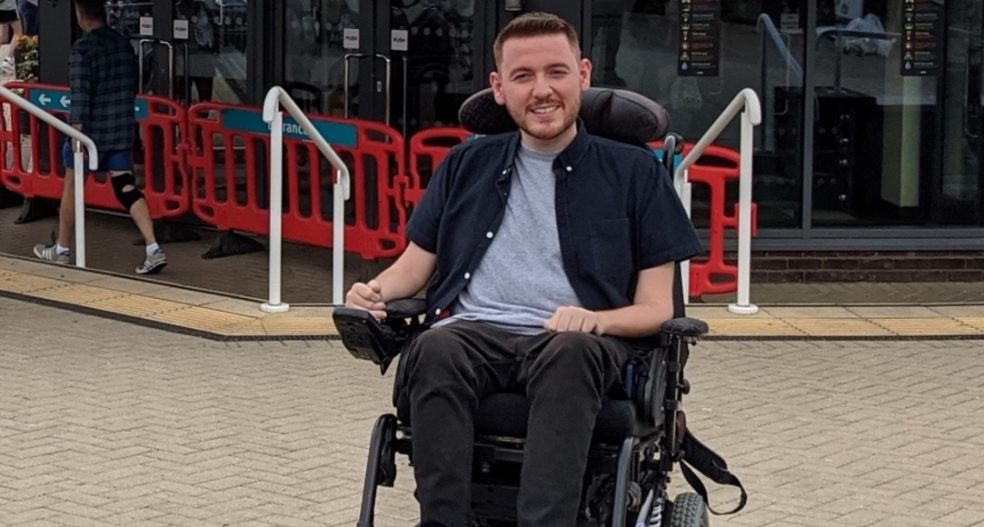
The drive to improve motorway journeys for disabled people in the South West
Plan your journey with confidence using National Highways’ access guides for motorway services.
National Highways has partnered with AccessAble, the UK’s leading provider of detailed accessibility information, to help motorists plan where to stop for a break at any one of the 114 motorway service areas across England, including 15 services across the South West.
Lifestyle and disability blogger, Ross Lannon visited the Moto services on the M5 at Exeter to test out the guides.
Ross, from Truro in Cornwall, has a condition called Spinal Muscular Atrophy and is a fulltime wheelchair user. He loves driving his adapted vehicle as it gives him so much freedom to work, socialise and travel but says that in the past he has been an anxious traveller, particularly on longer journeys, due to uncertainty about facilities on route.
Ross explained: “There’s nothing more stressful and embarrassing than getting to a location and there’s poor access, not having information in advance can be a very worrying time.
“The access guides have been incredible, having detailed information takes away the anxiety. The information has been tried and tested by a genuine person who has spent time keeping the details up to date - from toilets to parking and width of doorways it covers all the information you need.”
For many years, disabled people and carers using AccessAble have said how much they would value having access guides for motorway services, and what a difference comprehensive accessibility information would make to planning a trip.
The new guides, available online or via the free AccessAble app, are 100 per cent facts, figures, and photographs to help motorists plan their visit to the services. They cover key areas including parking, toilets, petrol stations, shops, and restaurants, with detailed information on everything from parking and hearing loops, to walking distances and accessible toilets.
In addition, Highways England and AccessAble have worked together to create virtual route guides for the services. This new type of guide, which uses 360-degree imagery, will enable visitors to ‘virtually’ explore routes to key facilities like accessible toilets and Changing Places, so they can find out exactly what to expect when they arrive.
Ross added: “The virtual walkthroughs have been a game changer, being able to see the layout in advance, see where you have to go and the facilities available makes the journey so much more relaxing. Virtual routes are the future, such a simple way to improve accessibility.”
National Highways Equality, Diversity and Inclusion Manager, Julian Horsler said: “We’re committed to ensuring our disabled customers can travel safely on our roads. That’s why we’re introducing new services to break down barriers and help people reliably plan and feel confident about their journeys.
“Whatever the nature of your disability, the access guides for motorway service areas take the guesswork out of journey planning, giving you the information you need about facilities along your route.”
Moto Hospitality Chief Operating Officer, Nick Tatum said: “Our vision is to transform the UK’s rest stop experience, this starts with giving our customers the ability to plan their journey in advance of their trip.
"The National Highways and AccessAble guides for motorway services give disabled people and carers the ability to plan their journey with confidence.
"From the insight we gained working with National Highways and AccessAble, we’ve also adapted our website to allow customers to plan their journey via facility ie Changing Places."

















